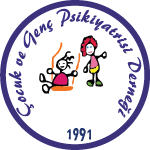ABSTRACT
Objectives
This study examines the experiences and challenges of Turkish child psychiatrists in assessing, diagnosing, and preparing reports for patients under the jurisdiction of health boards in the context of the regulation on the assessment of special needs of children (RASNC).
Materials and Methods
This descriptive study was conducted between March and April 2024 with the participation of child and adolescent psychiatrists throughout Türkiye. A self-report questionnaire was administered to volunteer physicians via online messaging applications to ascertain the challenges they faced in evaluating, diagnosing, and reporting on patients exhibiting health-related symptoms following the implementation of the RASNC regulation.
Results
The mean age of the participants (n=186) is 33.7 (±4.2) years, with 79% identifying as female. Most participants (85.3%) said the children apply to the health board directly through a legal guardian. 81.9% of participants reported that certain diagnoses did not receive special education approval. Most participants (71.3%) said patients with social communication disorder did not qualify for special education. Most participants (94.9%) agree that special needs in children with autism should be based on symptoms and functionality. They believe the practice of assigning “special condition requirement exists” to all patients diagnosed with autism is erroneous. Most participants (96.2%) said determining the level of special needs in cases diagnosed with post-traumatic stress disorder based on the child’s functionality would be more accurate.
Conclusion
The RASNC regulation should be implemented properly to protect patients and avoid legal issues for physicians. Physicians and guidance and research center staff should be trained on the regulation.



